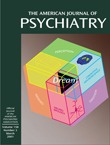The Dream in Contemporary Psychiatry
Abstract
OBJECTIVE: This article offers selective reviews of cogent sectors of research regarding the dream in contemporary psychiatry. METHOD: First, the author discusses relatively recent research (1953–1999) on the neurobiology and clinical psychophysiology of dreaming sleep; second, he reviews experimental cognitive neuroscientific studies of perception, emotion, and memory and the putative interrelationships among them in generating dream imagery; and third, he interprets psychoanalytic studies (1900–1999) on related aspects of dreams and the dream process. RESULTS: Exploration for interrelationships among information from these three areas entails discussion of the mind/brain problem. These considerations illuminate some of the logical and interpretive dilemmas that enter into debates about Freud’s theory of the dream. CONCLUSIONS: The author proposes a preliminary psychobiologic concept of the dream process and discusses, in light of the foregoing considerations, the importance of collaborative research for developing a realistic perspective concerning the proper place of the dream in contemporary psychiatry.



